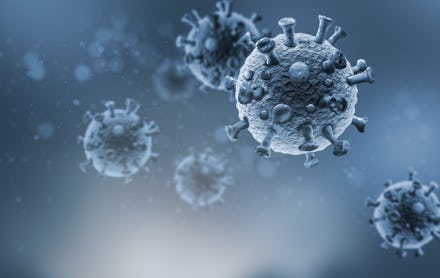Is "antiviral fabric" just a gimmick, or can it really protect you from coronavirus?

As scientists race to develop and test vaccines and treatments for COVID-19, others are engineering materials to protect wearers from infection. The pandemic has seen an emergence of these so-called antiviral fabrics. But what, exactly, is an antiviral fabric, and does it actually work against coronavirus?
So far, it appears very self-explanatory: It's a fabric designed to kill viruses on contact. Scientists are developing antiviral fabrics that target the novel coronavirus — the virus that causes COVID 19 — through a variety of approaches.
Intelligent Fabric Technologies North America (IFTNA), a Canadian biotech company, has developed PROTX2 AV, a chemical that can be coated onto fabric, which enters the outer shell of the novel coronavirus, disrupting its ability to replicate, Fast Company reports. Italian luxury manufacturer Albini Group and Swiss textile company HeiQ have also developed a fabric coating, ViroFormula, which may deactivate and block the replication of coronaviruses, per Vogue Business. Meanwhile, university researchers are at work on materials meant to kill the virus through low-level electric fields and UV light. These efforts seem to reflect a broader shift in priorities among at least some in the fashion world to bridge our health concerns with style, in the same vein as high-end designers manufacturing face masks.
PROTX2 AV seems pretty promising, and may have an advantage over other antimicrobial fabrics, like ViroFormula, that demonstrate activity against coronaviruses, but haven’t been proven to destroy the one that causes COVID-19, per Fast Company. Giancarlo Beevis, IFTNA’s CEO, recently received results from a lab in Asia (which he wouldn’t name) that the chemical killed 99.9% of the virus in 10 minutes’ time, and its capacity to destroy the virus lingered for a day. The tests met strict American Association of Textile Chemists standards.
Now, the EPA has to decide whether IFTNA can legally claim PROTX2 AV kills the novel coronavirus, Fast Company reports. IFTNA is in talks with the agency to expedite its application to allow manufacturing partners using the chemical on their fabrics to make the same claims.
Tt’s unclear at this point how much these fabrics, even if they do kill the novel coronavirus, will actually reduce wearers’ risk of contracting COVID-19. Vogue Business cites evidence of viruses spreading through clothing, but the CDC updated their recommendations last Thursday to emphasize that the novel coronavirus “spreads easily between people,” Mic recently reported — touching a contaminated surface, followed by your eyes, mouth, or nose, doesn’t seem to be the main way this particular virus spreads.
Plus, protective apparel appears to be lucrative, per Vogue Business, making it hard not to eye efforts to develop antiviral fabric with skepticism. IFTNA already has plans to drop a PROTX2 AV-treated laundry additive, lifestyle travel brand, and PPE, Fast Company reports. And its manufacturing partners, which plan to treat their products with the chemical, include the North Face, among other popular brands. All of this raises questions similar to those Mic posed in a recent story on designer face masks about the transition of protective gear from necessary safeguards to signifiers of wealth, and the ethics of profiting off a pandemic at all.
Antiviral fabric is certainly fascinating — as both a scientific and coronavirus capitalism case study — but whether it’ll have any real impact on the spread of COVID-19 remains to be seen.